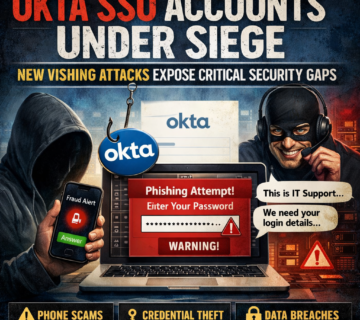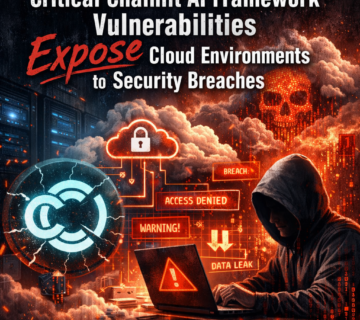Hackers Demand Ransom from SeaTac Airport in Cyberattack; Authorities Say No to Blackmail

In a shocking turn of events, Seattle-Tacoma International Airport (SeaTac) fell victim to a significant cyberattack that caused widespread disruption during one of the busiest travel periods of the year. The attack, which took place at the end of August 2024, targeted critical infrastructure at the airport, affecting internet, phone, and email systems. It wreaked havoc just ahead of the Labor Day weekend, leading to flight cancellations and severe operational challenges for both the airport and its airlines.
While airport officials eventually managed to regain control over their systems, the hackers, a group claiming to be associated with the notorious ransomware gang Rhysida, seized confidential data during the attack. Now, they are demanding a massive ransom to prevent further leaks of sensitive information, marking a troubling escalation in the incident.
Cyberattack Causes Chaos at SeaTac Airport
The cyberattack on SeaTac primarily affected Alaska Airlines, which operates numerous flights out of the airport. The disruption of the airport’s digital infrastructure resulted in an inability to check in many passengers. Alaska Airlines’ workers were forced to manually process tens of thousands of bags, a procedure normally handled by automated systems. This manual labor not only increased workloads but also slowed down operations considerably, exacerbating the already chaotic situation caused by the flight cancellations.
By the fourth day of the crisis, the airport and airline authorities were able to restore their systems. However, the hackers had already obtained sensitive data and proceeded to post a portion of it on the dark web, leading to growing concerns over data privacy and security.
Ransom Demand: 100 Bitcoin or $6 Million
On September 18, 2024, during a Senate Commerce, Science, and Transportation Committee hearing, SeaTac Aviation Managing Director Lance Lyttle revealed that the cyberattackers were demanding a ransom of 100 bitcoin—equivalent to approximately $6 million at current exchange rates. The ransom demand was made public after Rhysida, the ransomware gang believed to be responsible for the attack, posted samples of the stolen data on their dark web site.
“We’re reviewing the files published on the leak site, as well as others we believe were copied,” Lyttle stated during the Senate hearing. While Lyttle did not provide specific details regarding the stolen files, reports indicate that the data may include personal information from airport employees and passengers, such as Social Security numbers, tax forms, and even passport scans.
The hackers are reportedly auctioning the data to the highest bidder unless their ransom demand is met, raising fears of further exploitation of the sensitive information by criminal organizations.
SeaTac Refuses to Pay the Ransom
Despite the substantial ransom demand and the sensitive nature of the stolen data, SeaTac Airport has categorically refused to negotiate with the hackers. Lyttle made it clear that paying the ransom would not align with the airport’s values and would not be a responsible use of public funds.
“We don’t think paying the ransom is the best use of public funds,” Lyttle told the Senate Committee, adding that the airport was working closely with federal authorities, including the Federal Bureau of Investigation (FBI) and the Transportation Security Administration (TSA), to investigate the cyberattack and prevent future incidents.
Steve Metruck, Executive Director of the Port of Seattle, echoed Lyttle’s sentiments in a separate statement, emphasizing the importance of safeguarding taxpayer dollars and refusing to give in to criminal demands.
Data Security Concerns and Potential Impacts
The decision not to pay the ransom has led to widespread concerns about the potential exposure of sensitive information. Individuals whose personal data was compromised in the attack are at risk of identity theft and other malicious activities. Lyttle confirmed that airport authorities would notify affected individuals and provide guidance on how to protect themselves moving forward.
According to reports by Cyber Daily, an Australian cybersecurity news site, some of the stolen data includes a passport scan of a Port of Seattle program manager, along with tax forms and other confidential information. The publication speculated that this data could be auctioned to cybercriminals, escalating the risks for those whose details have been exposed.
While the exact scope of the stolen data remains unclear, the incident highlights the growing threat posed by ransomware gangs to critical infrastructure. Airports, in particular, are increasingly becoming targets for cyberattacks due to their reliance on complex digital systems and the vast amount of personal information they handle.
Collaboration with Federal Agencies
In the wake of the attack, SeaTac officials have been collaborating closely with federal agencies to strengthen their cybersecurity defenses. The FBI and TSA are conducting a thorough investigation to determine the source of the breach and how the attackers managed to infiltrate the airport’s systems.
Cybersecurity experts believe that the attackers may have gained access to SeaTac’s network through phishing schemes or vulnerabilities in third-party software. Lance Lyttle told the Senate Committee that understanding how the attack was carried out is critical to preventing future incidents.
Growing Trend of Ransomware Attacks on Airports
This attack on SeaTac is not an isolated incident. Just one month prior, a widespread software failure caused airports worldwide to experience massive disruptions after the CrowdStrike software, used by airlines for check-in systems, crashed. Although that particular incident was due to a faulty configuration update rather than a malicious attack, it exposed the vulnerability of airports and airlines to digital disruptions.
As ransomware attacks on public institutions and critical infrastructure increase, airports have become prime targets due to the significant operational chaos such attacks can cause and the valuable data they hold. Hackers recognize that the potential cost of downtime, reputational damage, and data theft gives them leverage to demand large ransoms.
SeaTac Airport’s Future Cybersecurity Plans
In response to the cyberattack, SeaTac has pledged to enhance its cybersecurity infrastructure and adopt more advanced defense mechanisms to prevent future incidents. The airport is expected to invest heavily in cybersecurity technology and staff training to safeguard against ransomware attacks.
However, cybersecurity experts warn that the risk of future attacks remains high, especially as ransomware gangs become more sophisticated in their methods. The aviation industry, they say, needs to remain vigilant and proactive in its defense strategies, as the stakes are too high to leave vulnerabilities exposed.
Frequently Asked Questions (FAQs)
1. What is ransomware? Ransomware is a type of malicious software that blocks access to a victim’s system or data, typically by encrypting files, and demands a ransom to restore access.
2. How did the SeaTac cyberattack happen? While the exact method is still under investigation, it’s suspected that hackers gained access through vulnerabilities in SeaTac’s systems or through phishing attacks aimed at employees.
3. Why is SeaTac refusing to pay the ransom? SeaTac believes that paying the ransom would not align with their values or be a responsible use of taxpayer dollars. They are working with federal authorities to address the breach.
4. What kind of data was stolen in the SeaTac cyberattack? Reports suggest that the stolen data may include Social Security numbers, tax forms, and passport scans, although the full extent is still under investigation.
5. What is Rhysida, the group behind the attack? Rhysida is a ransomware gang known for cyberattacks targeting public institutions and businesses. They are demanding 100 bitcoin (around $6 million) from SeaTac.
6. What is being done to prevent future cyberattacks on airports? SeaTac is collaborating with federal agencies like the FBI and TSA to enhance its cybersecurity infrastructure and prevent future breaches.
How Technijian Can Help
Technijian is a leading provider of comprehensive cybersecurity solutions. By offering advanced cybersecurity monitoring, threat detection, and employee training programs, Technijian helps businesses, including critical infrastructure like airports, safeguard against ransomware attacks. With an emphasis on proactive defense strategies, Technijian ensures that your organization remains secure in an increasingly hostile cyber environment.
About
Technijian is a premier provider of managed IT services in Orange County, delivering top-tier IT solutions designed to empower businesses to thrive in today’s fast-paced digital landscape. With a focus on reliability, security, and efficiency, we specialize in offering IT services that are tailored to meet the unique needs of businesses across Orange County and beyond.
Located in the heart of Irvine, Technijian has earned a reputation as a trusted partner for businesses seeking robust IT support in Irvine, Anaheim, Riverside, San Bernardino, and across Orange County. Our dedicated team of IT experts ensures that your technology infrastructure is always optimized, secure, and aligned with your business goals. Whether you require managed IT services in Irvine, IT consulting, or cloud services in Orange County, we’ve got you covered.
As a leader in IT support in Orange County, we understand the challenges businesses face when maintaining and advancing their IT environments. That’s why our comprehensive suite of services includes IT infrastructure management, IT support in Anaheim, IT help desk, and IT outsourcing services. With proactive monitoring, disaster recovery, and strategic consulting, our goal is to minimize downtime, enhance productivity, and provide IT security services that give you peace of mind.
At Technijian, we take pride in offering customized managed IT solutions that exceed client expectations. From small businesses to large enterprises, our IT services in Irvine are designed to scale with your needs and support your growth. We specialize in cloud services, IT systems management, business IT support, technology support services, IT network management, and enterprise IT support. Whether you’re looking for IT support in Riverside, IT solutions in San Diego, or managed IT services in Anaheim, Technijian has the expertise to meet your requirements.
Whether you need help with IT performance optimization, IT service management, or IT security solutions, we provide comprehensive services that enable businesses to remain agile in today’s competitive market. Our IT solutions provider services ensure your operations remain secure, productive, and future-ready.
Experience the difference with Technijian—your trusted partner for IT consulting services, managed IT services, and IT support in Orange County. Let us guide you through the complexities of modern IT infrastructure and help you achieve your business objectives with confidence.





